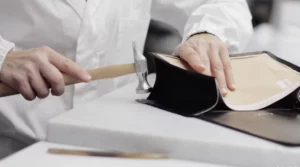How To Find A Handbag Manufacturer
In the dynamic world of fashion, the success of your handbag line hinges significantly on the capabilities and reliability of your manufacturer. Whether you’re a budding entrepreneur in the fashion industry or an established brand looking to expand your product line, choosing the right handbag manufacturer is a critical step. This guide offers comprehensive insights into navigating the complex process of finding a manufacturer that aligns with your brand’s vision and quality standards.
Understanding Different Types of Handbag Manufacturers
Before diving into your search, it’s crucial to understand the landscape of handbag manufacturing. The industry boasts a variety of manufacturers, including large-scale factories, specialized boutique workshops, and wholesale producers. Each type offers distinct services, from mass production capabilities to bespoke, custom-made options. Assessing your brand’s needs and production goals is essential in determining the right type of manufacturer for your handbags.
Effective Strategies to Locate Handbag Producers
- Google Searches and Sourcing Agents: A simple Google search on private label ‘leather goods manufacturer‘ or ‘handbag manufacturer‘ can yield local and international manufacturers. Alternatively, hiring a sourcing agent can streamline the process, leveraging their industry knowledge and connections to find manufacturers that meet your specific requirements.
- Industry Trade Shows: Participate in fashion and accessory trade shows. These events are goldmines for networking and provide opportunities to meet manufacturers face-to-face, gain firsthand insights into their work, and assess their compatibility with your brand.
- Online Directories and Databases: Utilize online resources to find lists of handbag manufacturers. Websites like Make Works and Sqetch cater specifically to fashion businesses and can be excellent starting points.
- Social Media Exploration: Platforms like LinkedIn and Instagram are increasingly becoming valuable tools for finding manufacturers. Many companies showcase their work on these platforms, providing insights into their capabilities and style.
Key Considerations in How to Find a Handbag Manufacturer
- Quality and Craftsmanship: When locating handbag producers, prioritize those known for their high-quality materials and meticulous craftsmanship. Request samples to gauge the quality firsthand, a crucial step in identifying the right bag production company
- Production Capacity: Align your production needs with the manufacturer’s capacity. This is vital whether you’re sourcing purse manufacturers for a small, exclusive line or a large-scale production.
- Pricing and Budget: In your quest to find a handbag manufacturer, discuss pricing structures in detail. Transparency in costs, including additional fees, is essential to strike a balance between cost-effectiveness and quality.
- Communication and Responsiveness: Effective communication is key to a successful partnership, especially when identifying bag production companies. Opt for manufacturers who offer clear, consistent, and transparent communication channels.
- Ethical Practices: Locating handbag producers who adhere to ethical labor practices and sustainable production methods can significantly enhance your brand’s value in today’s socially conscious market.
Negotiating Terms with Handbag Manufacturers
Once you’ve shortlisted and identified bag production companies, the negotiation phase begins. This step involves finalizing terms around pricing, timelines, payment schedules, and quality control measures. It’s advisable to seek legal counsel to draft a contract that encapsulates all agreed terms, ensuring a mutual understanding and a smooth collaboration.
Final Thoughts
When searching for ‘how to find a handbag manufacturer’, finding the right maker is always a journey that demands diligence, research, and careful consideration. It’s a partnership that can significantly impact the trajectory of your fashion brand. Invest time in identifying a manufacturer whose capabilities, ethos, and business practices align with your brand’s ethos and market position.

